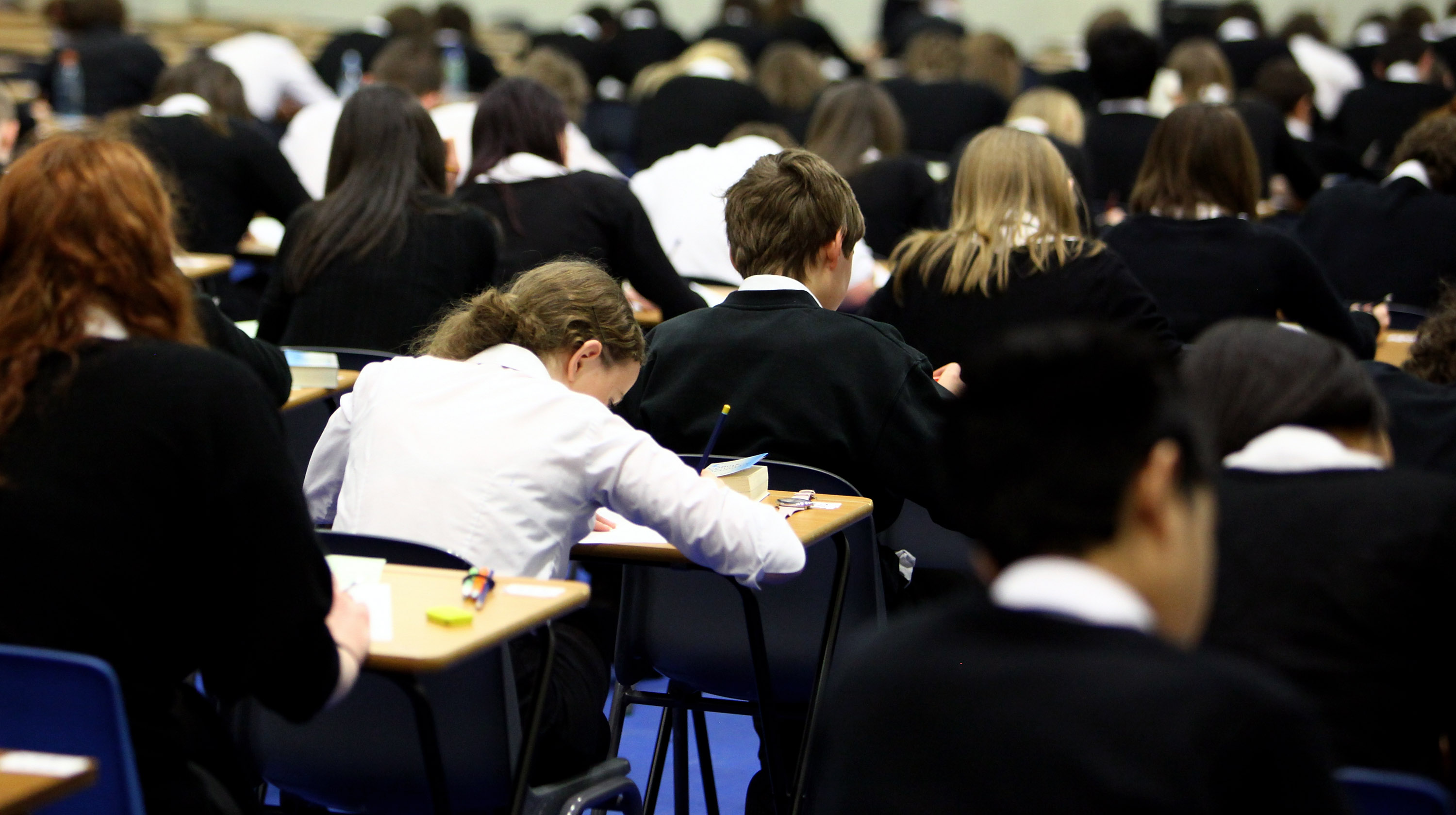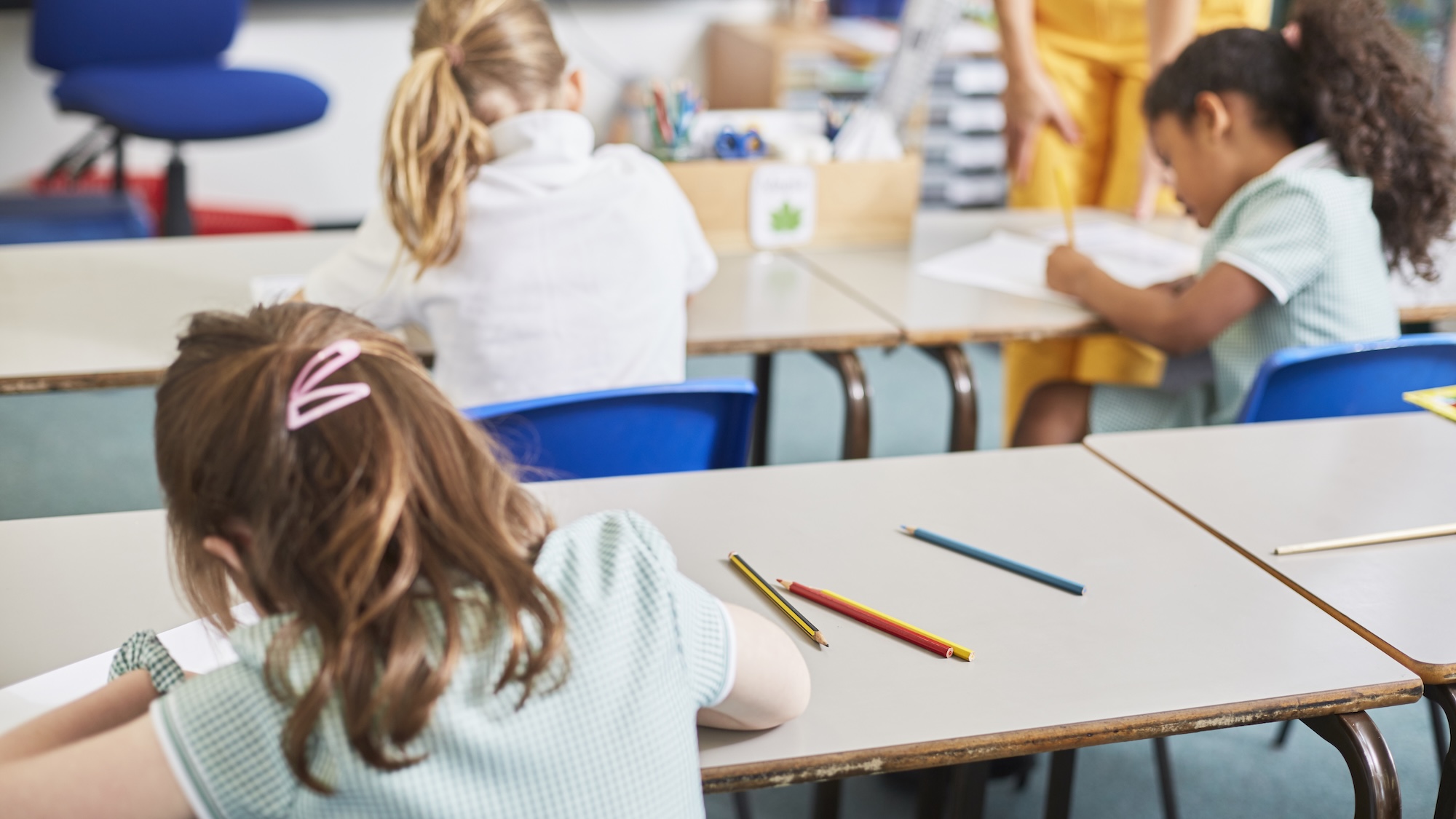Why are so many pupils leaving school without basic qualifications?
Report from children's commissioner reveals 28% rise in teens failing to achieve five good GCSE grades

A free daily email with the biggest news stories of the day – and the best features from TheWeek.com
You are now subscribed
Your newsletter sign-up was successful
The children’s commissioner has called for urgent government action after revealing that the number of teenagers leaving education without basic qualifications has risen to nearly 100,000.
Almost one in five teenagers in England left education without achieving five GCSEs at the equivalent of at least a C grade last year, according to research by Anne Longfield. The children’s rights watchdog says the “shameful” increase to a total of 98,799 children represents a 28% rise since 2015.
The new analysis shows there is a social dimension to the trend. Children in receipt of free school meals are more than twice as likely to leave school aged 19 without any substantive qualification.
The Week
Escape your echo chamber. Get the facts behind the news, plus analysis from multiple perspectives.

Sign up for The Week's Free Newsletters
From our morning news briefing to a weekly Good News Newsletter, get the best of The Week delivered directly to your inbox.
From our morning news briefing to a weekly Good News Newsletter, get the best of The Week delivered directly to your inbox.
There is also a significant “attainment gap” between pupils with special educational needs (SEN) and their non-SEN peers. That chasm has widened from 26% in 2015 to 33% in 2018.
–––––––––––––––––––––––––––––––For a round-up of the most important stories from around the world - and a concise, refreshing and balanced take on the week’s news agenda - try The Week magazine. Get your first six issues for £6–––––––––––––––––––––––––––––––
The report comes four years after the government raised the compulsory education and training age to 18.
Many commentators argue that the rise in the number of children leaving without the basic benchmark qualifications is a result of the government’s austerity programme. The Independent says that cuts in school funding have made it harder for children, especially those from underpriviledged backgrounds, to succeed.
A free daily email with the biggest news stories of the day – and the best features from TheWeek.com
Angela Rayner, Labour’s shadow education secretary, blamed the “shocking” trend on the Conservative Party’s “brutal cuts on education and support for families and children”.
That view is shared by Paul Whiteman, general secretary of school leaders’ union NAHT. He told The Times: “Children from disadvantaged backgrounds are the victims of a decade of austerity. Successive governments have failed to invest in those who need it the most, and now we see the result.”
Teachers’ unions also say that government reforms to make exams tougher have disproportionately hit pupils from disadvantaged backgrounds. “Many of these young people are not helped by new GCSEs which have been made deliberately more rigorous,” said Julie McCulloch, director of policy at the Association of School and College Leaders.
Children’s Commissioner Longfield has has written to the Government to demand an independent review into falling attainment. “It is particularly unacceptable that children growing up in the poorest areas of the country and children with special educational needs are most likely to leave school without reaching basic levels of attainment,” she said.
-
 Local elections 2026: where are they and who is expected to win?
Local elections 2026: where are they and who is expected to win?The Explainer Labour is braced for heavy losses and U-turn on postponing some council elections hasn’t helped the party’s prospects
-
 6 of the world’s most accessible destinations
6 of the world’s most accessible destinationsThe Week Recommends Experience all of Berlin, Singapore and Sydney
-
 How the FCC’s ‘equal time’ rule works
How the FCC’s ‘equal time’ rule worksIn the Spotlight The law is at the heart of the Colbert-CBS conflict
-
 The pros and cons of banning cellphones in classrooms
The pros and cons of banning cellphones in classroomsPros and cons The devices could be major distractions
-
 School phone bans: Why they're spreading
School phone bans: Why they're spreadingFeature 17 states are imposing all-day phone bans in schools
-
 Schools: The return of a dreaded fitness test
Schools: The return of a dreaded fitness testFeature Donald Trump is bringing the Presidential Fitness Test back to classrooms nationwide
-
 Send reforms: government's battle over special educational needs
Send reforms: government's battle over special educational needsThe Explainer Current system in 'crisis' but parents fear overhaul will leave many young people behind
-
 Education: Can public schools be religious?
Education: Can public schools be religious?Feature A Supreme Court seems ready to rule in favor of religious charter schools in Oklahoma, which could reshape public education
-
 America's academic brain drain has begun
America's academic brain drain has begunIN THE SPOTLIGHT As the Trump administration targets universities and teachers, educators are eying greener academic pastures elsewhere — and other nations are starting to take notice
-
 Schools' Send crisis: how can it be fixed?
Schools' Send crisis: how can it be fixed?Today's Big Question Government urged to reform support for children with special educational needs and disabilities and save councils from bankruptcy
-
 Unschooling: the radical education trend raising eyebrows
Unschooling: the radical education trend raising eyebrowsUnder the radar Some parents are letting their children lead their education